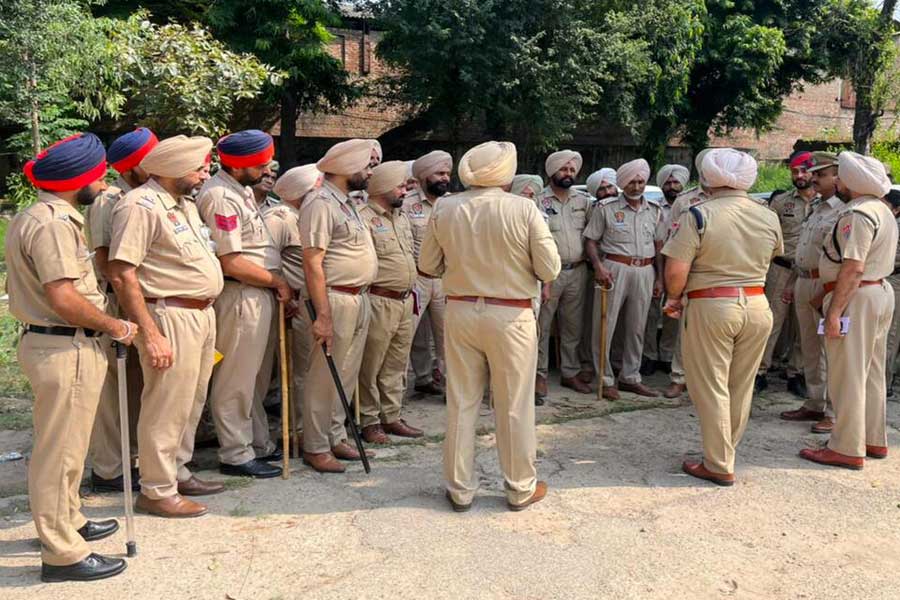Indian Cops' Secret Mission in Kathmandu Sparks Diplomatic Row

An unauthorized cross-border operation by Indian police in Nepal has triggered a diplomatic backlash, prompting India’s Ministry of Home Affairs (MHA) to issue a strong directive to all states and Union Territories. The ministry has reminded police chiefs and top bureaucrats that prior approval is essential before conducting any official investigation in a foreign country.
The incident took place in the last week of February when around six officers from Punjab Police’s Anti-Gangster Task Force (AGTF) entered Nepal and reportedly tried to arrest a wanted criminal near a restaurant in the Nagarjun area on the outskirts of Kathmandu.
Nepal Police, upon learning of the Indian officers' activities, responded swiftly and restricted the Punjab team from proceeding further. The situation was later defused through high-level communication between senior officials in Delhi and their counterparts in Kathmandu. The Indian officers were subsequently allowed to leave.
“The police team’s visit without any approval caused embarrassment for the Indian side,” a senior Indian official acknowledged.
Although both the Indian and Nepali governments are trying to keep the incident under wraps—given their history of cooperation on cross-border criminal investigations—the MHA issued a formal letter on March 19 to the chief secretaries, Directors General of Police (DGPs), and the Delhi Police Commissioner.
The letter did not explicitly name Nepal, but it stated: “It has been observed in a recent case that a state police team had visited a foreign country for investigations in a criminal matter without prior authorization from the competent authority in that country, leading to an adverse situation.”
The MHA further warned that any such visits without proper approval from the foreign country and without informing the Ministry of External Affairs (MEA) or the concerned Indian diplomatic mission “could lead to avoidable embarrassment” and may be seen as interference in the sovereignty of another nation.
According to the existing guidelines, Indian police officers do not have jurisdiction or investigative powers in foreign countries. Any visit must be cleared through proper diplomatic channels, and the Indian mission in the destination country must be informed.
The MHA emphasized that whenever a foreign visit is deemed necessary for investigation, a proposal must first be sent to its Internal Security-II Division to obtain central approval. Once approved, the team must report to the concerned Indian mission upon arrival.
The All India Services Conduct Rules also stipulate that officers must obtain political clearance from the MEA and security clearance from the MHA for any investigation or official work abroad. Even for personal travel, police officers are required to inform the government.
Nepal’s Ministry of Home Affairs was approached for comment. Ramchandra Tiwari, Joint Secretary and spokesperson for the ministry, said, “We don’t have information about such an incident.” Meanwhile, Pramod Ban, head of Punjab’s AGTF, downplayed the issue, stating, “Our team had gone to collect information, not conduct any operation.” When asked whether Nepal Police detained his team, he responded, “Nothing of that sort happened.”
Although Indian officials have avoided making formal public statements, the MHA’s internal communication reveals the gravity of the situation.
Historically, India and Nepal have cooperated in law enforcement efforts. In 2013, Indian Mujahideen chief Yasin Bhatkal was arrested near the Nepal border, and in 2008, Nepal Police assisted the Indian CBI in arresting Dr. Amit Kumar—mastermind of a kidney trafficking racket—from Kathmandu.
This latest episode, however, serves as a critical reminder: even longstanding allies must strictly adhere to diplomatic protocols when operating on foreign soil.




![From Kathmandu to the World: How Excel Students Are Winning Big [Admission Open]](https://nepalaaja.com/img/70194/medium/excel-college-info-eng-nep-2342.jpg)
